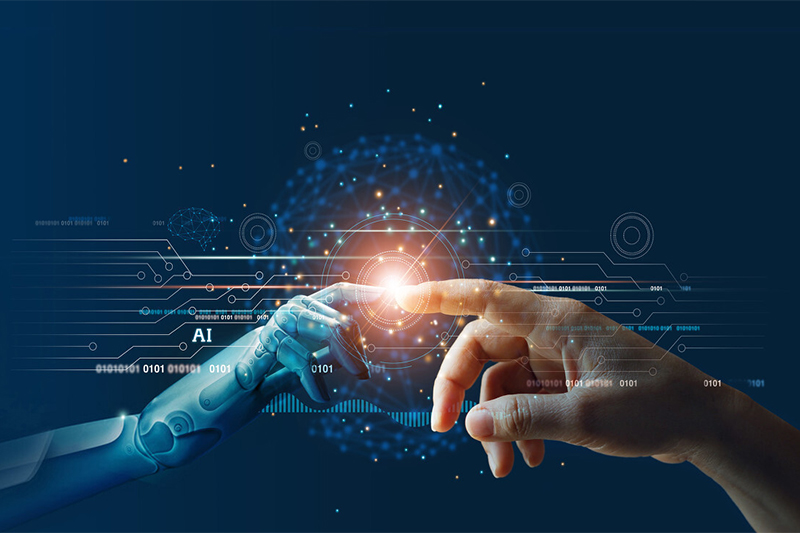
12 Feb 6 Top Artificial Intelligence Trends for 2021
6 Top Artificial Intelligence Trends for 2021
Artificial Intelligence (AI) – the technology that mimics the human brain. It is the science of making machines intelligent, specifically intelligent programs that demonstrate intelligence in undertaking particular tasks, however unlike human intelligence which involves emotionality and consciousness.
What is Artificial Intelligence?
As deduced from the term, Artificial Intelligence (AI) is the simulation of human intelligence in devices and machines. That means machines are capable of performing tasks that would require thinking and performing like humans.
It has characteristics of learning, analysis, and problem-solving with multiple approaches, and is able to rationalize, adapt and take actions like humans but without being associated with humans. AI can be categorized in:
- Narrow AI – Carry out specifically defined tasks without being programmed on how to do. For example –Apple’s virtual assistant Siri, interpreting video feeds from drones.
- General AI –Adaptable intellect that is found in humans that can carry out immensely diverse tasks like building spreadsheets, haircutting, etc.
6 Top AI Trends for 2021
AI-driven automation is still in a nascent stage with huge possibilities for the future. Here we look at key AI trends for 2021:
1. NLP Models for Advanced Human-Machine Conversation
Natural Language Processing incorporated with AI would be implemented in different verticals of businesses directed toward reducing redundancy in manual activities, creating a better customer experience and strengthening value-added prepositions. Also known as Conversational AI, it is the kind of Virtual Personal Assistants (for example; Amazon Alexa, Apple’s Siri, Google Home). At the same level of maturity, it can also be adapted in the form of Virtual Customer Assistants and Virtual Employee Assistants.
2. Artificial Intelligence of Things
Artificial Intelligence of Things (AIoT) is the amalgamation of Artificial intelligence (AI) technologies with the Internet of things (IoT) infrastructure to achieve more efficient IoT operations, improve human-machine interactions and enhance data management and analytics. These devices will be able to collect data and then learn and take decisions. For example, An AIoT fridge will tell what food content it has and what you can make from that. Voice interfaces will be built on the AIoT and not on the cloud, thereby reducing latency and inefficiency.
3. AI and Cloud with Analytics Deployment
AI will enable broader adoption of cloud. AI model deployment on the cloud will help manage the vast amount of cloud data, infer insights from it and create an integrated deep learning process. This huge network will not only be capable of storing unimaginable data, but also provide an ability to learn, adapt and improve on the go.
4. AI in Cyber Security
Preventive cyber-security, resolving IT issues through AIOps – this is going to be a huge step forward for the businesses. AI and ML would be leveraged to take security measures incorporating context-based access controls, data encryption, geo-fencing of work locations, and much more. AI, in correlation with machine learning and threat intelligence, will be able to identify data patterns to single out the anomalies, reducing incident response times.
5. Hyper-Automation
AI technology combined with robotic process automation and machine learning will move past the present-phase task-defined automation to create a Hyper-automation platform that will see enhanced intelligent system processes that will amalgamate better with human vision and decision making to drive business efficiency. It works to provide important insight from automation into ROI, align business and IT for the next phase of business transformation, and deliver end-to-end solutions in automation implementation, driving the workforce of today to achieve more with fewer errors and achieve it faster.
6. AI-Enabled Chips
AI needs more data to function and this necessitates the use of more potent hardware. This is where we are going to witness the creation and use of AI-enabled chips in the near future. AI devices in the future would be needed to deliver high levels of performance but with ease of use and better economy. To serve the AI market, versatility will be key and therefore this is where high-end futuristic chips that are able to support a whole lot of applications will be in need.
AI’ future is strong and the evolution we are witnessing in the field, it is going to make AI more and more essential for industries to adopt.
